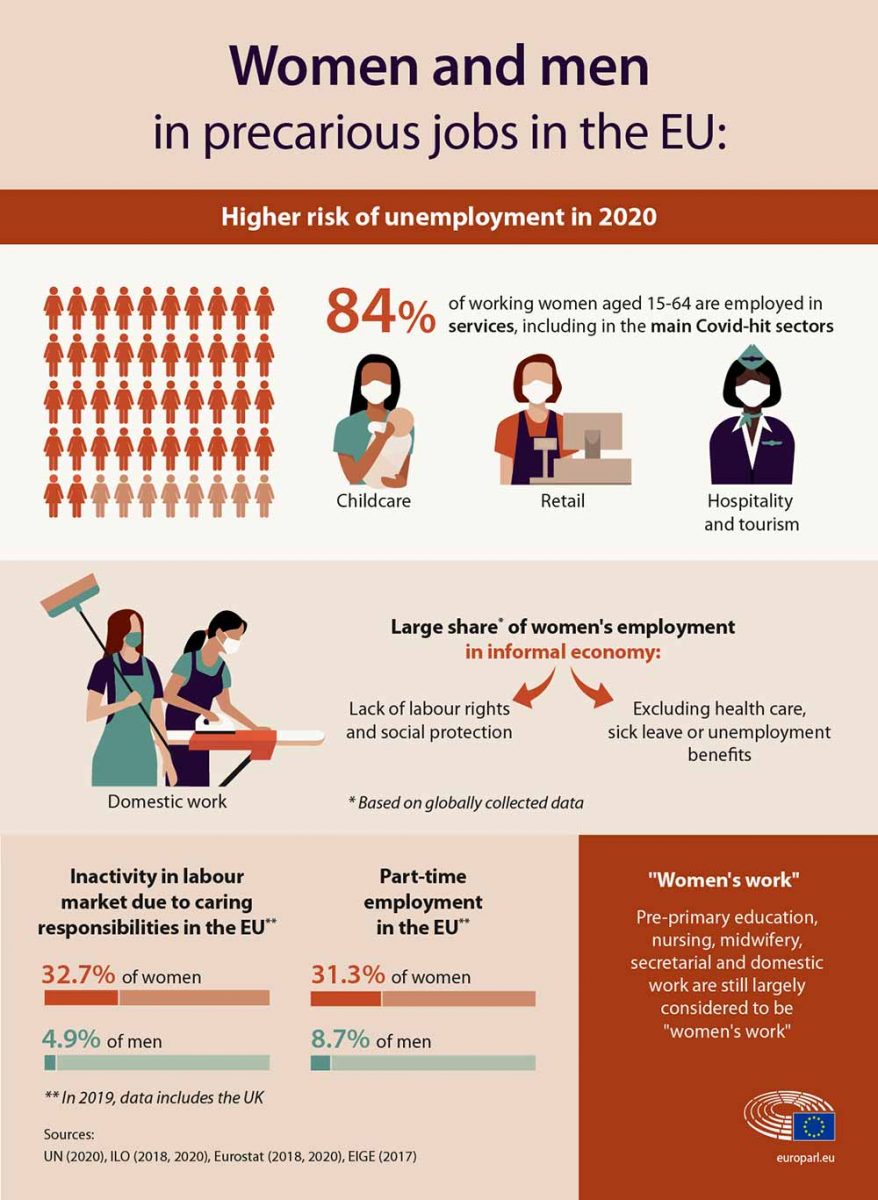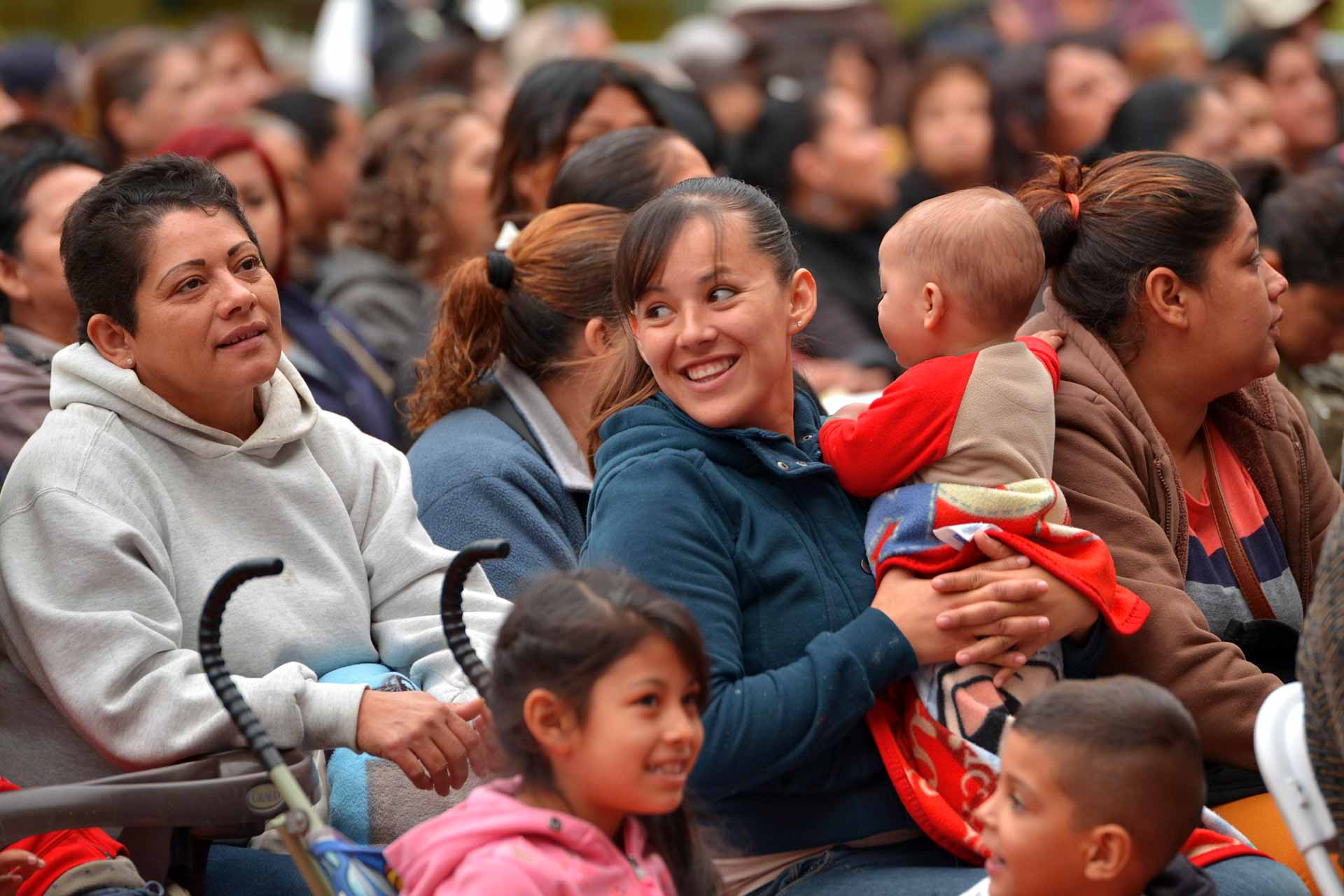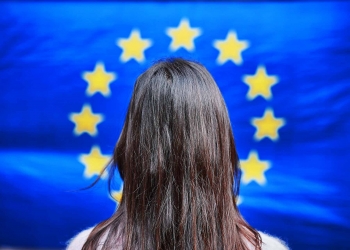Progress for women in work could be back at 2017 levels by the end of 2021 as a result of the COVID-19 pandemic. This shows an analysis conducted for PwC’s annual Women in Work Index, which measures female economic empowerment across 33 Organisation for Economic Cooperation and Development (OECD) countries. The evidence emerging globally is that the damage from COVID-19 and government response and recovery policies, is disproportionately being felt by women.
For nine years, countries across the OECD made consistent gains towards women’s economic empowerment. However, due to COVID-19 this trend will now be reversed, with the Index estimated to fall 2.1 points between 2019 and 2021, according to analysis undertaken for PwC’s annual Women in Work Index. The Index will not begin to recover until 2022, where it should gain back 0.8 points.
Progress for women by 2030
In order to undo the damage caused by COVID-19 to women in work – even by 2030, progress towards gender equality needs to be twice as fast as its historical rate.
The setbacks that we are experiencing with COVID-19 in terms of the workforce tell a worrisome story. While the impacts are being felt by everyone across the globe, we are seeing women exiting the workforce at a faster rate than men. Women carry a heavier burden than men of unpaid care and domestic work. This has increased during the pandemic, and it is limiting women’s time and options to contribute to the economy. In the labour market, more women work in hard-hit human contact-intensive service sectors – such as accomodation and food services, and retail trade. With social distancing and lockdowns, these sectors have seen unprecedented job losses.
Bhushan Sethi, Joint Global Leader, People and Organization at PwC
Gender equality: Women hold the top Global Finance positions
Between 2019 and 2020, the annual OECD unemployment rate increased by 1.7 percentage points for women (from 5.7% in 2019 to 7.4% in 2020). In the US, the female unemployment rate increased sharply from 4% in March 2020 to 16% in April 2020. The female unemployment rate stayed high for the remainder of 2020, ending the year in December 2020 at 6.7%, 3 percentage points higher than in December 2019.
In the UK, the full impact of job losses from COVID-19 is yet to be realised due to job retention schemes, but furlough data shows that women are at greater risk of losing their jobs when these schemes come to an end. Between July and October 2020, a total of 15.3 million jobs were furloughed in the UK. For furloughed jobs for which gender was known, 52% of these were women’s jobs, despite women only making up 48% of the workforce.
The disproportionate burden of unpaid childcare falls on women
Before COVID-19 hit, women on average spent six more hours than men on unpaid childcare every week (according to research by UN Women). During COVID-19, women have taken on an even greater share and now spend 7.7 more hours per week on unpaid childcare than men – this ‘second shift’ equates to 31.5 hours per week; almost as much an extra full-time job.
This increase in unpaid labour has already reduced women’s contribution to the economy. If this extra burden lasts, it will cause more women to leave the labour market permanently, reversing progress towards gender equality and reducing productivity in the economy.
While some women may choose to leave the workforce temporarily due to COVID-19 with the intention to return post-pandemic, research shows that career breaks have long-term impacts on women’s labour market prospects, and women will return to lower paid and lower skilled positions.
Increased job insecurity for women
About 84% of the working women aged 15-64 are employed in services, including in the main Covid-hit sectors that are facing job losses. Quarantine has also affected sectors of the economy where traditionally more women have been employed, including nursery, secretarial and domestic work.
More than 30% of women in the EU work part-time and occupy a large share of jobs in the informal economy, which tend to have fewer labour rights as well as less health protection and other fundamental benefits. They are also much more likely to take time off to care for children and relatives and during lockdowns often had to combine teleworking and child care.

PwC Women in Work 2021 Index (performance prior to COVID-19 pandemic)
Iceland continues to hold the top spot on the Index out of OECD countries. It is a consistent strong performer in female labour force participation (84%), has a small participation rate gap (5%), and even smaller female unemployment rate (3%).
Greece saw the largest increase in terms of Index score between 2018 and 2019, driven by improvement in all labour market indicators except for the share of full-time female employees. On the contrary, Portugal experienced the largest decline in Index score between 2018 and 2019 due to a widening of its gender pay gap by 5 percentage points.
New Zealand and Slovenia both increased their rankings on the Index by one position. New Zealand saw an upward trend across all five indicators and has risen by 5 spots on the Index over the course of nine years. Government policy and a history of female representation in political institutions have helped to drive these gains. Slovenia’s improvement was driven by a fall in the participation rate gap and in female unemployment, as well as an increase in the share of full-time female employment.
If OECD countries increased their rates of female employment to match Sweden’s (consistently the top performer), the gain to GDP would be over US$6 trillion per annum. The US, with one of the highest female unemployment rates, is expected to gain the most – as much as US$1.7 trillion per annum.















